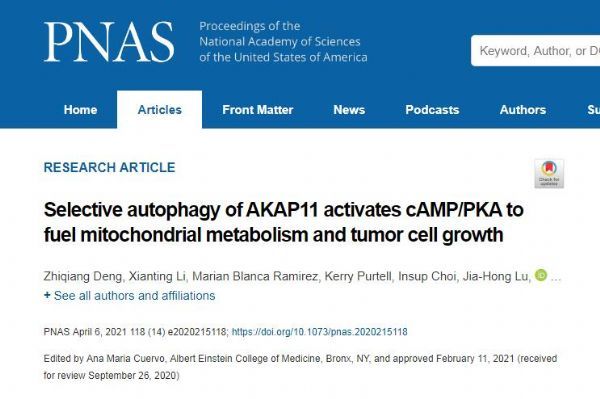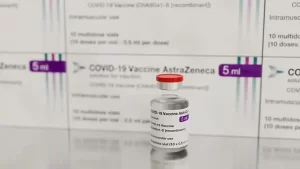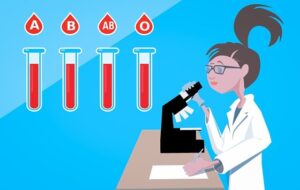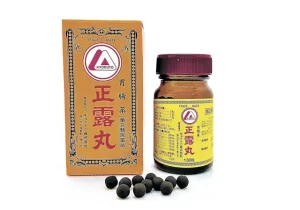PNAS: Reveals a new type of autophagy cell protection mechanism
- Popular Indian Spices Banned in Hong Kong Over Carcinogen Concerns
- AstraZeneca Admits for the First Time that its COVID Vaccine Has Blood Clot Side Effects
- Gut Bacteria Enzymes Offer Hope for ABO Universal Blood Transfusions
- Well-Known Japanese Medicine Exposed for 30 Years of Data Falsification
- Oregon Reverses Course: From Decriminalization to Recriminalization of Drug Possession
- Why Lecanemab’s Adoption Faces an Uphill Battle in US?
PNAS: Reveals a new type of autophagy cell protection mechanism
PNAS: Reveals a new type of autophagy cell protection mechanism, or is expected to help develop new anti-cancer therapies.
Autophagy is a catabolic pathway that provides self-nutrition and maintains cell homeostasis. It is also a basic cytoprotective pathway that can metabolize intracellular “cargo” in the body’s circulation and provide decomposition products.
The autophagy process can promote the survival of cells by providing fuel from multiple sources as a result of digestion. Recently, in a research report titled “Selective autophagy of AKAP11 activates cAMP/PKA to fuel mitochondrial metabolism and tumor cell growth” published in the international journal Proceedings of the National Academy of Sciences, scientists from Mount Sinai Hospital and other institutions Through research, we have uncovered the molecular mechanism of tumor cells using selective autophagy to perform metabolic reprogramming.
Metabolic reprogramming can benefit tumor cell growth and help cancer cells develop tolerance to glucose deprivation. Researchers have discovered that the autophagy process mediated by AKAP11 (A-kinase-anchoring protein 11) may be used as a new type of therapeutic target to help develop new anti-cancer therapies.

The autophagy process is a lysosomal degradation pathway, which can protect cells by recovering the “cargo” in the cell and providing decomposition products; in this research report, the researchers demonstrated a new mechanism, that is, auto Phage can selectively degrade PKA (protein kinase A) inhibiting subunit RIα, and this process is mediated by the response of AKAP11 receptors to energy threats. The degradation of Riα and the activation of cAMP/PKA mediated by AKAP11 will increase the level of mitochondrial metabolism in the cell to respond to glucose starvation, and then protect the cell to survive. Importantly, inhibiting the level of AKAP11 in tumor cells may block the degradation of Riα and the activation of PKA, thereby promoting the inhibitory effect on tumor cell growth.
In this research report, the researchers revealed a new concept of autophagy-mediated cell protection and tumor growth by inhibiting protein kinase A (PKA). PKA is the main regulator of cell metabolism, which can promote mitochondrial metabolism. Programming. After studying a variety of cell lines, the researchers provided evidence that the activation of PKA in tumors and PKA activation will drive the risk of carcinogenesis. The results of related studies have proposed a new type of therapeutic target, which researchers may be able to block The activation of PKA mediated by the autophagy process can be used to develop new therapies for the treatment of specific cancers.
The study revealed a new mechanism of cell protection. In addition to producing digestive nutrients to supplement cells and promote their survival, autophagy can also control the metabolic process of cells. Researchers have identified that autophagy may promote cAMP/ PKA is active to maintain the survival of cells in the process of energy threat, and cAMP/PKA is the main regulator of cell metabolism. Autophagy can selectively degrade PKA inhibitory subunit RIα, and this process is mediated by the AKAP11 receptor. The activation of cAMP/PKA mediated by AKAP11 will increase the level of mitochondrial metabolism in response to the response of cells to glucose starvation and subsequent protection of cell survival.
In addition, the researchers also found that inhibiting the level of AKAP11 in tumor cells may inhibit the degradation of Riα, which can then block the activation of PKA, thereby inducing the inhibition of tumor cell growth. Tumor cells may use selective autophagy to degrade AKAP11 and activate PKA to achieve cell growth and develop tolerance to glucose deprivation.
In summary, this article reveals a new type of cell autophagy protection mechanism, and the key role that autophagy plays in promoting mitochondrial metabolism and mediating the cell’s tolerance to glucose deprivation during growth; at the same time, the researchers also proposed, AKAP11-mediated cAMP/PKA activation induced by selective autophagy may be used as a therapeutic target to help develop new anti-cancer therapies.
(source:internet, reference only)
Disclaimer of medicaltrend.org



